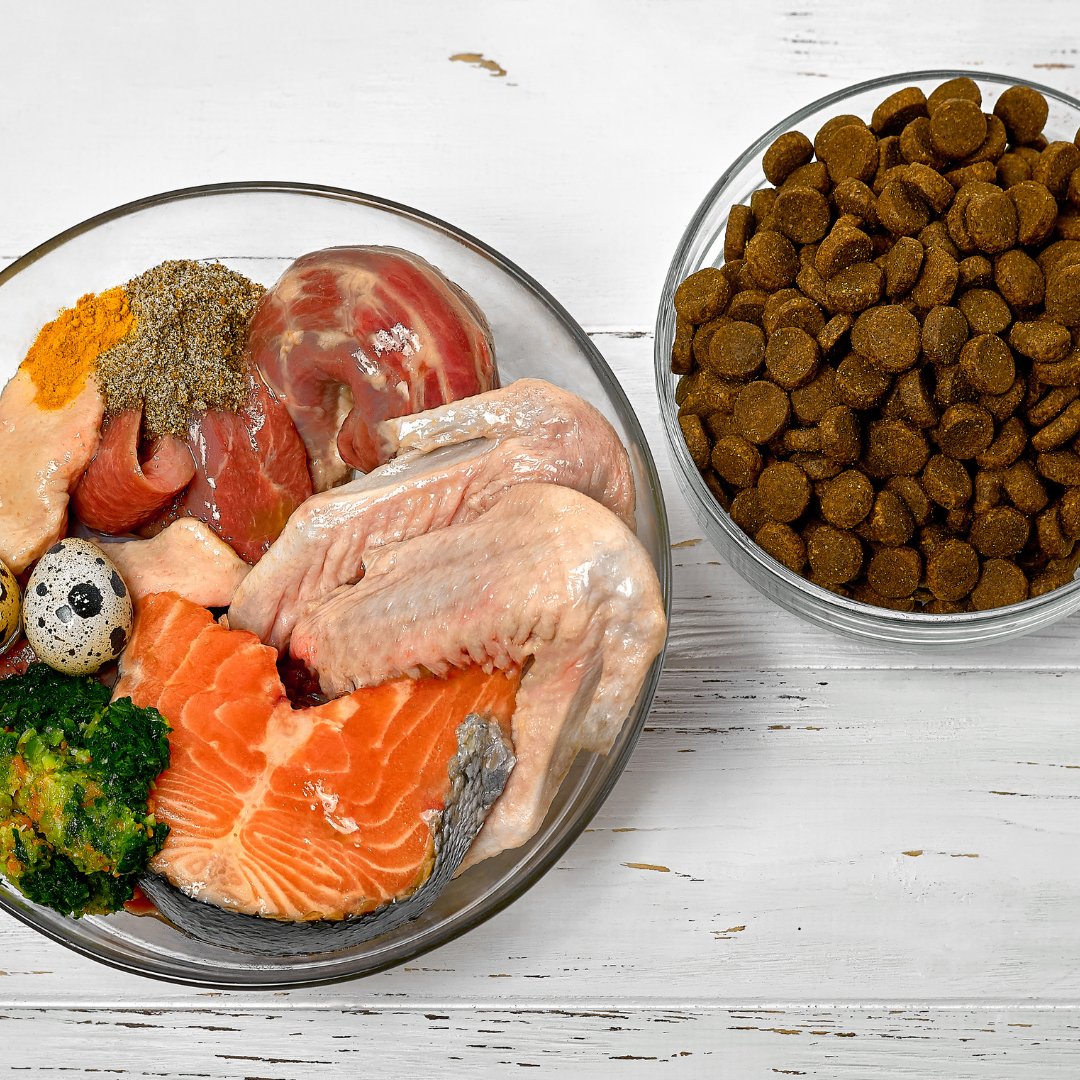
Make and Use Eggshell Powder in Dog Food Recipes
Eggshells are a cost-effective and easy way to add calcium to your dog's diet.
Why Eggshell Powder?
1. Eggshells are a fantastic source of calcium, a vital mineral for bone health, muscle function, and overall well-being in dogs. By creating your eggshell powder, you have control over the quality and can ensure it's free from additives or harmful substances. Most dog food companies use calcium carbonate which may contain heavy metals such as aluminum, lead, and mercury.
2. If you are choosing to cook your dog’s meals, bones are no longer an option. Once a bone has been cooked, you run the risk of the bone splintering and leading to an emergency vet visit.
3. Eggshells are lower in phosphorous than bone. If you have a dog that is suffering from Chronic Kidney Failure and are looking to lower the phosphorus intake, eggshell powder is an excellent option.
How To Make Eggshell Powder:
Step 1: Gather Your Materials
- Eggshells (from free-range eggs if possible)
- Baking sheet
- Oven
- Coffee grinder
- Glass storage container
Step 2: Save Those Shells
After enjoying your eggs or feeding your dog, instead of tossing the shells, collect them. Rinse them thoroughly to remove any residue, and let them air dry. If the eggshell has an ink mark on the outside, make sure to remove that portion of the egg. You can use any type of poultry egg. If your dog is intolerant or allergic to chicken, you may want to source other eggs.
Poultry Eggs include:
- Turkey
- Duck
- Quail
- Emu
- Goose
- Pheasant
- Partridge
- Grouse
You may be surprised by what farmers you have in your area.
Not all dogs that are sensitive to chicken are sensitive to the shell. You can run a trial for 2 weeks and watch for any issues.
Step 3: Preheat and Bake
Preheat your oven to 200°F (93°C). Place the clean, dry eggshells on a baking sheet, and bake them for about 10 minutes.
or
Option 2: Air Dry
After washing, you can let the eggs air dry on the counter for three days before grinding. I have used this method in the past but have found that if I have not washed the eggs thoroughly enough, the egg whites create a glue-like substance on my baking sheets and become very difficult to remove.
Step 4: Crush and Grind
Once the eggshells are cool, crush them into smaller pieces. Once baked, the shells become almost glass-like and break very easily. Transfer them to a coffee grinder and pulse until you achieve a fine, powder-like consistency. This process may take a few minutes, depending on the power of your equipment.
Step 5: Store Your Eggshell Powder
Transfer the freshly ground eggshell powder into an airtight container. Store it in a cool, dark place to maintain its freshness. It is not necessary to store the powder in the refrigerator.
How to Use Eggshell Powder in Raw Dog Food:
The calcium-to-phosphorous ratio for dogs is between 1:1 and 1:2.
To achieve this you will add ½ tsp -1 tsp eggshell powder per 1 pound of boneless meat or 800 mg-1000 mg per 1 pound of boneless meat.
Like with all fresh food diets, monitor your dog's stool for correct consistency. I advise using the ½ tsp per 1 pound of meat. You can always build up if necessary. If your dog’s stool is chalk white and hard, you will want to reduce the amount of eggshell powder used.
If you are feeding raw and are batch preparing, mixing the eggshell powder thoroughly can be challenging. I recommend mixing the food by hand. No, I do not mean without powered equipment. I mean with your hand. Massaging the eggshell powder through the meat has proven to be an easier method for those who do not have a meat grinder.
If you are gently cooking your dog’s food, mixing is much easier. Once the food has cooled to a workable temperature, I prefer to use an immersion blender that mixes all of the ingredients.
Conclusion:
Making your eggshell powder is a simple and cost-effective way to boost the nutritional content of your homemade dog food. By taking control of your canine companion's diet, you're not only promoting their health but also helping to add years to their life. Try this DIY approach and watch your dog thrive on the benefits of homemade eggshell powder.


